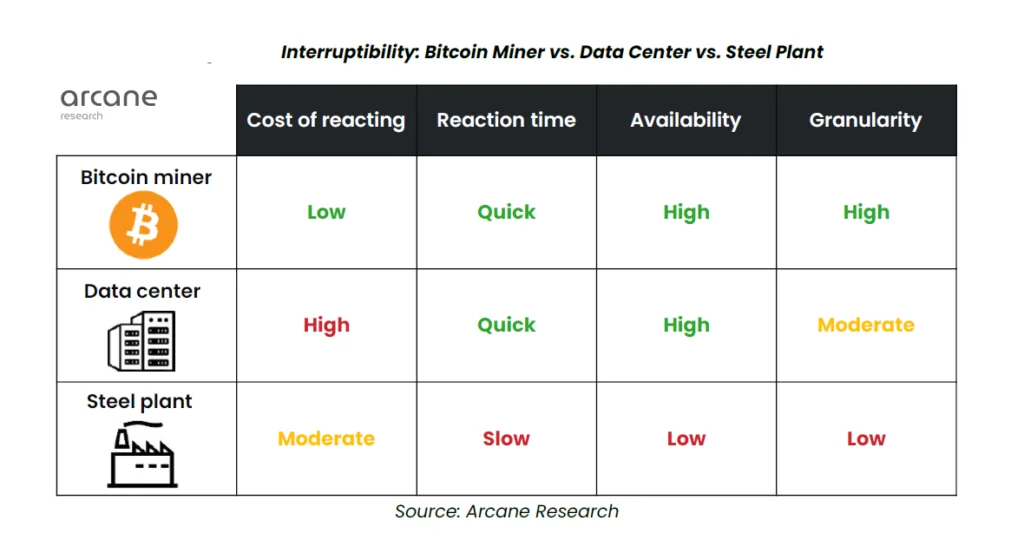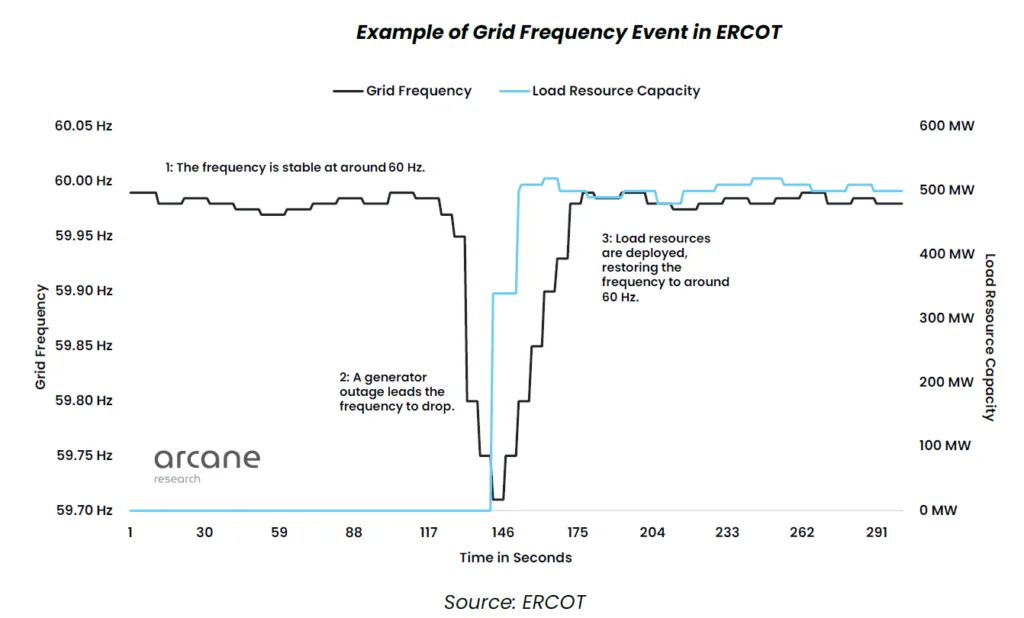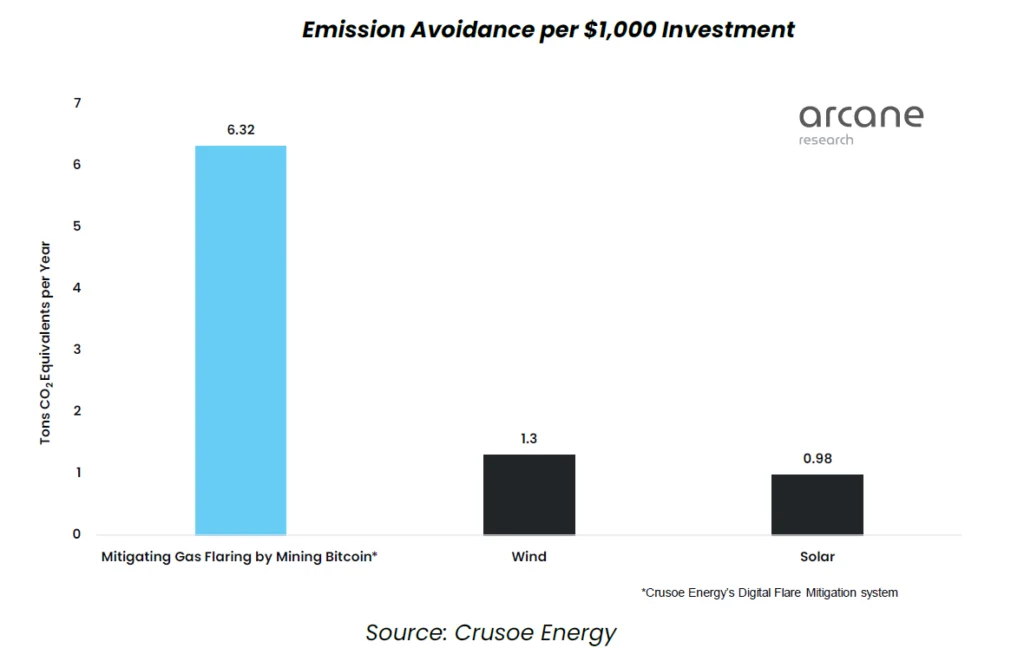The market has the ability to completely change the energy sector, according to recent research from Arcane.

According to Arcane research, the adaptability of running Bitcoin (BTC) mining operations may be essential for resolving the practical issues that hinder the energy sector.
When it comes to Bitcoin’s widespread acceptance, one of the main issues authorities bring up is its energy consumption.
While advancements in chipset production have assisted in lowering operational costs associated with Bitcoin mining, a report by Arcane indicates the market’s potential to revolutionize the energy sector.

Bitcoin mining supports the expansion of wind and solar systems, which frequently provide unpredictable and uncontrollable energy, because of its low cost of reaction.
According to an obscure study, the Electric Reliability Council of Texas has only up to now permitted bitcoin miners to take part in the most sophisticated demand response systems.

Bitcoin mining can assist in resolving problems with gas flaring, the process of burning natural gas involved with oil extraction, in addition to being adaptable to grid demands.
Arcane emphasizes that miners can set up operations next to oil wells by taking advantage of the agnosticism, modularity, and portability of Bitcoin rigs. Reasoning that “Per $1,000 investment, a bitcoin mining system reduces emissions of 6.32 tons of CO2 equivalents per year, compared to 1.3 for wind and 0.98 for solar.”

By using the heat produced as a byproduct of bitcoin mining to heat up buildings, businesses, and other uses for the next winter, this technology can aid the energy sector even more.
It is significant to highlight that around 40% of the world’s CO2 emissions are caused by heating.
Reusing heat from bitcoin mining has a number of benefits, including lower operating costs and less expensive heating.
The aforementioned research is important since it was conducted at a time when the Eurozone experienced record-high inflation of 9.1% due to the gas and energy crises.

According to recent research, the biggest price increase over the past month was in energy costs, which increased at an annual rate of 38.3%.
